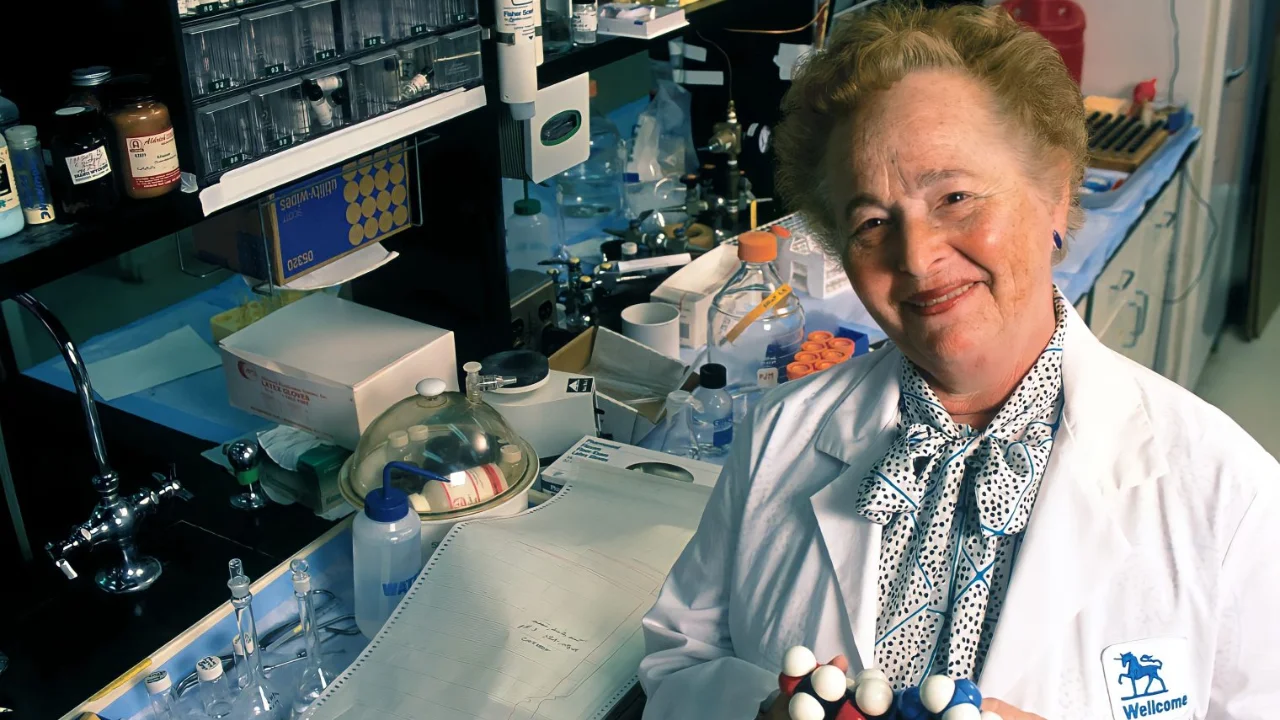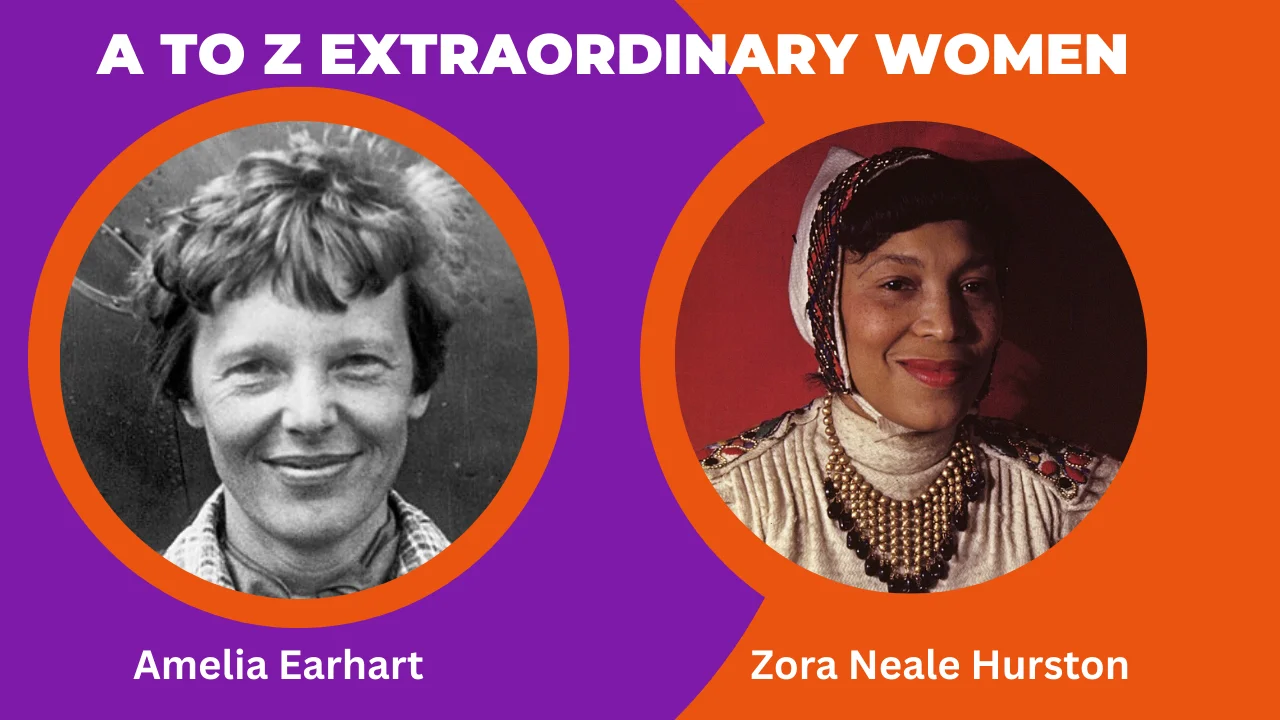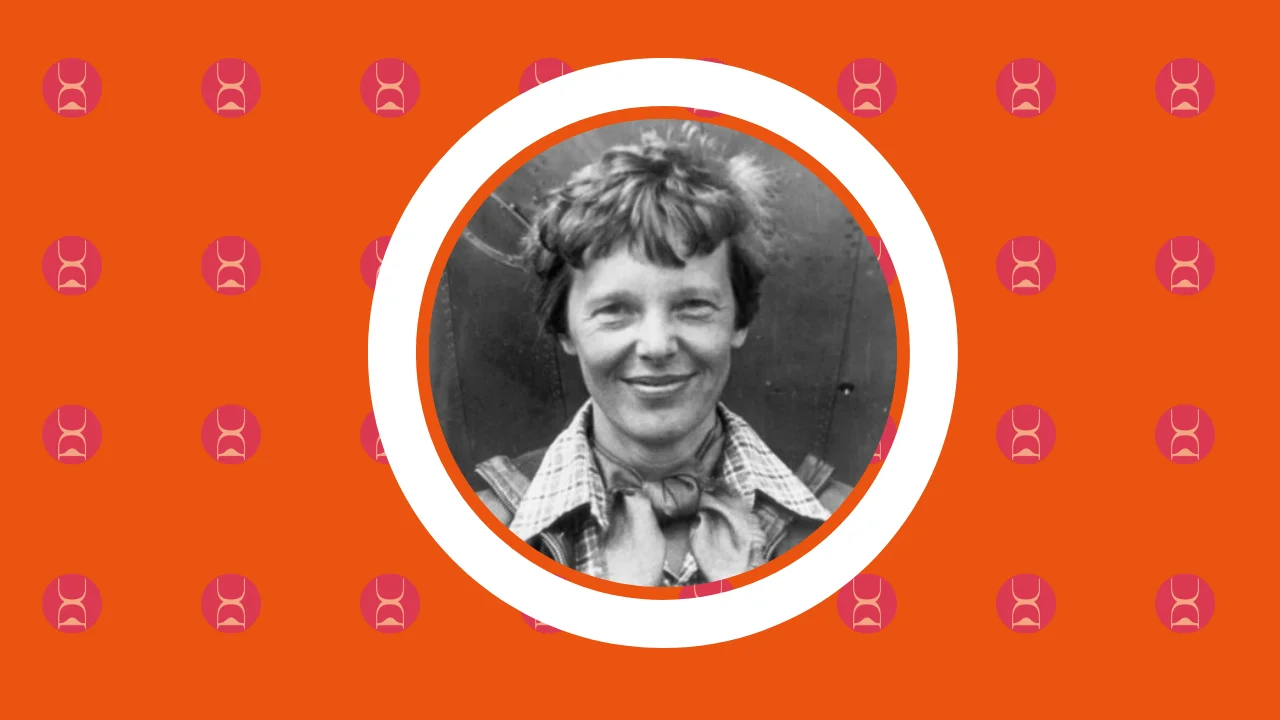Life and Lessons With Gertrude B. Elion
20 Mar 2025

Gertrude B. Elion was a well-known American biochemist and pharmacologist versatile in drug development and science. She became famous and notable for the 1988 Nobel Prize in Physiology or Medicine, which she shared with George H. Hitchings and Sir James Black.
This prize indicated her contribution to developing rational drug design methods for new drugs. The new drugs from her development helped in the treatment of several diseases.
Born as an immigrant in New York City on January 23, 1918, and died on February 21, 1999, her works during her lifetime made waves and positive transformation in improving the quality of health status of many.

Some scientists are naturally inquisitive and drawn to science. Others are motivated by personal loss, like wanting to cure a disease that took a loved one. Gertrude Elion embodied both. A talented student with endless potential, she was further focused on a scientific career after her grandfather died from cancer.
“I was very close to my grandfather because he came from Europe when I was about three years old and lived very close to us. And, I watched him die, essentially, in the hospital. And that made a tremendous impression on me. I decided that nobody should suffer that much”. - Gertrude Elion
Early life and education
Gertrude B. Elion was born in New York City on January 23, 1918, to parents Robert Elion, a Lithuanian Jewish immigrant, and a dentist, and Bertha Cohen, a Polish Jewish immigrant. She was born into a well-to-do family, but unfortunately, her family lost their wealth after the Wall Street Crash of 1929.
Elion’s passion for medicine, drugs, and science started from a tender age. At age 15, Elion got inspired to pursue a career in the medical field after she lost her grandfather to stomach cancer.

source: achievement.org[/caption]
Her family was comfortable until the stock market crash of 1929 bankrupted Elion’s family, casting a pall on her college prospects. However, with her high grades, she got into Hunter College, which was free, but after college, Elion simply did not have the money to go on to graduate school. She needed a fellowship, but those didn’t often go to women, especially not during the Depression.
To keep herself occupied and avoid wasting time, she had to take up odd jobs like working as a secretary and a high school teacher. She even went as far as taking an unpaid position in a chemistry lab. Eventually, from the money she gathered from some of these odd jobs, she attended New York University, where she obtained her M.Sc degree in 1941 while working as a school teacher.
Finally, when World War II diminished the ranks of male chemists, Elion got her break.
Elion also started pursuing her PhD at the New York University Tandon School of Engineering. But, she couldn’t complete the program because she was told that if she wanted to complete her PhD she would have to quit work and study full-time. She opted to drop her studies and stay at the lab – a difficult decision at a time when female scientists were often considered inferior to male ones.
“Years later, when I received three honorary doctorate degrees from George Washington University, Brown University, and the University of Michigan, I decided that perhaps that decision had been the right one after all,” - Gertrude B. Elion.
Career Life As a Researcher
Elion’s career spans some of the odd jobs she did to survive until she eventually got her dream work as a researcher for various labs and organizations. For organizations, she worked in places like the National Cancer Institute, the American Association for Cancer Research, and the World Health Organization.
In 1944, Elion found the job of her dreams, assisting George Hitchings at Burroughs Wellcome, the American outpost of a British pharmaceutical firm operated by a charitable trust. It would ultimately become the drug giant GlaxoSmithKline.
She also held a position as the head of the Department of Experimental Therapy for Burroughs Wellcome. She worked briefly as an affiliate pharmacology and experimental medicine professor at Duke University from 1971 to 1983. She returned to the same university as a research professor from 1983 to 1999.

source: time.com[/caption]
As a research professor, she focused on mentoring medical and graduate students. During this period, she published up to 25 papers and more with the students she mentored at Duke.
Elion continued to work at Burroughs Wellcome after she retired, where she immensely contributed to the development of AZT, one of the first drugs used to treat HIV and AIDS. She was also part of the development of nelarabine, which she worked on until she died in 1999.
Partnering with Hitchings, she worked on discovering new drugs using rational drug design to design drugs that could kill or inhibit the reproduction of particular pathogens without harming human cells. The drugs developed were resourceful in treating various diseases, such as leukemia, malaria, lupus, hepatitis, arthritis, gout, organ transplant rejection, and herpes.
Elion’s first major discovery, in 1950, when she was 32, was a purine compound that interfered with the formation of leukemia cells: 6-mercaptopurine, 6-MP for short. The drug was rushed to release because it put acute leukemia patients – often, children fated to die within months of diagnosis – into complete remission. But the effect was temporary; eventually many relapsed. When the children got well, Elion was elated; when they died, she was despondent, but determined to find a way to make the effects of her drug last longer.
Elion’s final major breakthrough was in the development of the antiviral drug acyclovir, approved in 1977. Scientists doubted that drugs could be invented to fight viruses; any substance that would kill a virus would be too toxic for the body to endure.
But Elion persisted, and the drug her team developed both attacked herpes and could be used to fight Epstein-Barr, chickenpox, and shingles. It also ushered in a new era of antiviral therapy, opening the door to the development of the first drug to treat AIDS: AZT.
Throughout her career years, She contributed to the development of the following drugs;
Mercaptopurine (Purinethol), the first treatment for leukemia, is also used in organ transplantation.
Azathioprine (Imuran), the first immuno-suppressive agent, was used for organ transplants.
Allopurinol (Zyloprim), for gout.
Pyrimethamine (Daraprim) for treating malaria.
Trimethoprim (Proloprim, Monoprim, others) for meningitis, sepsis, and bacterial infections of the urinary and respiratory tracts.
Acyclovir (Zovirax) for treating viral herpes.
Nelarabine for cancer treatment.
Personal Life
Elion never married or had children, but after she graduated from Hunter College, she briefly dated Leonard Canter, an outstanding statistics student at City College of New York. They had plans to get married, but Leonard died in 1941 after battling with bacterial endocarditis, an infection of his heart valves.
This experience further fueled her pursuit to become a research scientist and pharmacologist. Even though she had no children, she took pride in looking after her nieces and nephews.
I had fallen in love with a young man… and we were planning to get married. And then he died of subacute bacterial endocarditis… Two years later with the advent of penicillin, he would have been saved. It reinforced in my mind the importance of scientific discovery - Gertrude B. Elion
Awards and Honors
During her lifetime, Elion obtained numerous Awards and Honors. One of these remarkable awards is the Nobel Prize in Physiology or Medicine, received with Hitchings and Sir James Black for discoveries of important new principles of drug treatment.
She was the fifth female Nobel laureate in Medicine and the ninth in science in general, and one of only a handful of laureates without a doctoral degree.
Though her individual discoveries were significant, when Elion received the Nobel Prize in Physiology or Medicine in 1988 (with Hitchings and James Black), it wasn’t for one particular drug, it was for a new, more rational approach to drug development. Simply put, Elion changed the way researchers develop drugs.
Elion’s name appears on 45 patents for life-saving and life-changing drugs. She received numerous awards including a National Medal of Science and 23 honorary degrees. She sat on dozens of boards and served several committees, tirelessly giving of herself to science and its students until the end.
Although she died in 1999 at the age of 81, Gertrude Elion is still saving lives.
“It is important to go into work you would like to do. Then it doesn’t seem like work. You sometimes feel it’s almost too good to be true that someone will pay you for enjoying yourself. I’ve been very fortunate that my work led to useful drugs for a variety of serious illnesses. The thrill of seeing people get well who might otherwise have died of diseases like leukemia, kidney failure, and herpes virus encephalitis cannot be described in words.” - Gertrude B. Elion

Source: achievement.org[/caption]
Lessons Learnt from Gertrude Elion
1. Perseverance and passion: One of the significant challenges Elion experienced was being a female in a male-dominated field of science at the time. This prevented her from getting a paying research job, but she decided to pursue her passion relentlessly and not give up. She later got the opportunity to contribute to the field of science in numerous ways that helped fulfill her dreams.
“Don’t be afraid of hard work. Nothing worthwhile comes easily. Don’t let others discourage you or tell you that you can’t do it. In my day I was told women didn’t go into chemistry. I saw no reason why we couldn’t.” - Gertrude B. Elion
2. Innovative thinking: As an innovative thinker, her team-up with Dr. George H. Hitchings was pivotal. As innovators, they had to take an unconventional way of studying chemically decomposed cells. Rather than conducting numerous trials and errors, they designed the drugs based on the differences between normal human cells and pathogens.
3. Purpose-driven work: Right from day one, Elion’s decision to pursue a career in medical science was purpose-driven and can be rooted in her experience and connection to her grandfather’s cancer, which inspired her to move ahead.
A snippet of the book: Gertrude Elion's revolutionary work with medicines earned her a Nobel Prize. She dedicated her life to helping others and touched the lives of many people through her efforts. The medicines she invented helped combat serious medical conditions, such as leukemia and AIDS. Readers will enjoy Elion's story and the details of her many accomplishments.




